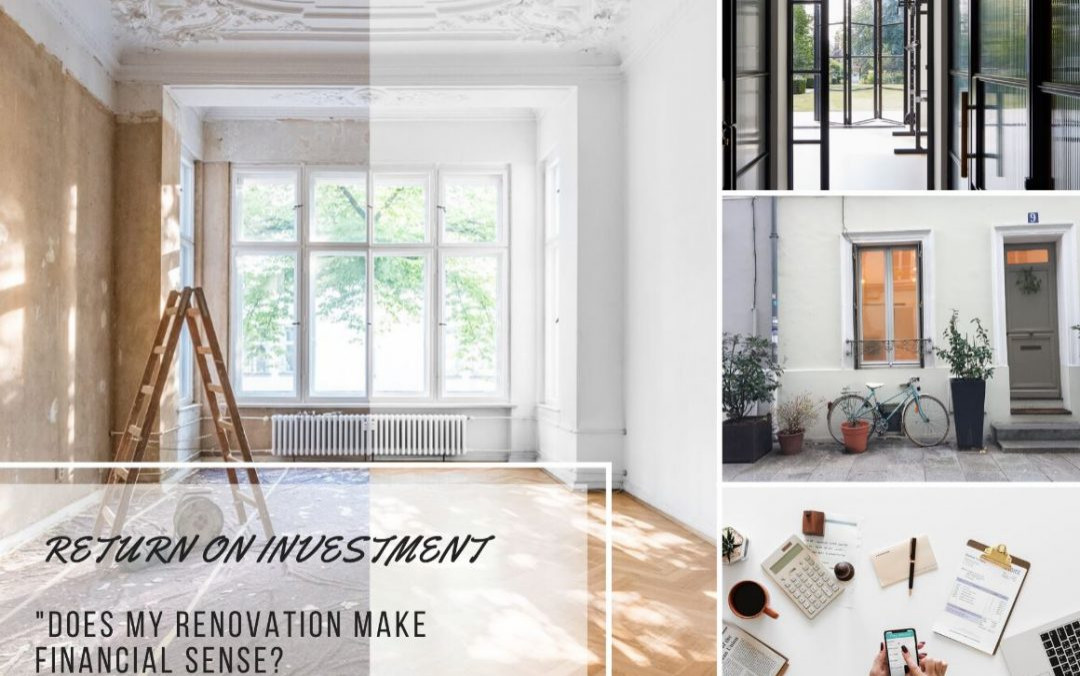RETURN ON INVESTMENT – DOES MY HOUSE REFURBISHMENT MAKE FINANCIAL SENSE?

It is often the case that our houses are not only a place to live and call home; they are also our main investment. Some go onto making career into property, starting with their first home and scaling up the ladder to build a substantial portfolio. Others, see property as a ‘dream home’ making that will become the legacy to their children and grandchildren.
Not every home renovation offers a high return on investment. In fact, most upgrades that you make around the house end up costing hundreds or even thousands more than they’re worth. If you love the result, then those overpriced changes can be worth it. But if you have any intention of selling your house in the future, then you’ll want to choose renovations that make sense, cost-wise.
Not surprisingly, this is one of the first points of discussion when we start working on a house project. The key here is to establish not only the budget but also the return on investment—the family plans for staying in the house, their work circumstances and long term plans.
Our work as the architects, designers and experts in planning matters, construction detailing and building project managements suddenly shifts into financial discussions. I always explain that I am not able to advise on investment or financial issues. However, I am often able to send clients to seek with the right experts and ask the kind of questions that will help them make the decisions on the budget that is right for them and their project.
Here are some questions you may want to ask yourself when embarking on a refurbishment project ;
# Are we planning to stay in this house for 5 to 10 years or less
If you are making this your long term home, there is more scope to allow some cost freedom and to chose features and finishes that reflect your taste more closely. Otherwise, focusing on detail will be costly as your future buyer will not appreciate the expensive door furniture or bespoke skirting boards choice.
# location, location, location
Your house has a current market value that you should know it at the outset. Being aware of how this relates to the type of property – terrace, semi, detached- and accommodation – usually the number of bedrooms- access, driveways and garden is key. The location Vs the type of property should be one of the main drivers. Never underestimate the value of doing this research.
# No need to ‘max’ unless this is part of your requirements
Knowing what you would like to achieve for your family as well as leaving open doors -or at least not making it difficult for future owners to change things- will go a long way. We all like to buy properties with the potential to develop. There is no need to exhaust the options for refurbishment.
# Have a clear strategy
Focusing on the big picture and the primary outcome will get you the results with the most impact and ROI. Phasing the project may be the best option if the budget is tight or if you are uncertain. There will be very few buyers to an unfinished project or a house in the making.
# The value of good design
It may seem counterintuitive, but spending money on a good design becomes crucial when working on a budget. Ralph Speth summed this up when he said ‘If you think good design is expensive, you should look at the cost of bad design’. I would add that it is guaranteed to bring you 100 per cent its value in ROI.
Let’s set up a time to talk. I would love to hear more about your ideas and help you during an initial consultation, at no charge.
